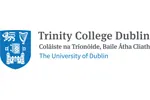About Biblical and Theological Studies, BA (Hons) - at Trinity College Dublin
Biblical and theological studies can be studied as a single honor subject (TR008) or in combination with one other subject within the two-subject moderatorship (TSM) programme. TSM is a joint honors programme; both subjects are studied for three years and one subject only is studied in the fourth and final year.
Course overviewThe School of Hebrew, Biblical and Theological Studies is an independent academic environment for the study of religions in the ancient and modern worlds. It is not affiliated to any church or religious body. We start from the beginning, so no previous knowledge of this subject or any language is required.
In the first year you take a range of introductory courses on Judaism, Christianity and Islam. Each of these religions is studied in both its ancient and its modern setting. From second year on, you may choose from a range of courses depending upon your individual interests; so, for instance you may decide to take courses which are more historical in nature (for example, examining the origins of Judaism or Celtic Christianity) or more philosophical (for example, exploring questions such as science and religion, the ethics of genetic engineering, the challenge of atheism). In the second year, you will have the opportunity to learn Hebrew or Greek but are not required to do so.
This course aims to help you develop a critical understanding of the place of religion in ancient and modern societies. You will undertake the exegetical (critical explanation) of the Bible and examine the historical context within which biblical texts were written. So, for example the influence of Mesopotamia, Egypt, Greece and Rome on the early Jewish writers will be explored. The expressions of religious belief in different ages (for example, Jewish and Christian mystics of the Middle Ages, the challenge of the Enlightenment) and the study of modern attempts to express religious identity in the face of the challenge of the modern world form central themes. Through these courses, you will develop the ability to reflect in a mature and critical way on religion and its significance in the modern world.
Is this the right course for me?Do not judge a course by whether or not it is immediately relevant to the job market. This course, like most others in the University, is about your intellectual development, preparing you for entry into any one of a wide range of careers pursued by arts graduates (see below, 'Career Opportunities'). The best way to develop your mind is through the rigorous study of a subject of interest. This is the right course for you if you are interested in any of the following areas: ancient and modern history, early Christianity, Judaism, Greek and Roman culture, philosophy, theology, current affairs, medical ethics, world religions and politics. All of these themes are covered in various courses offered over the four-year period of your degree.
Course contentWhen studied as a single honor degree the course moves from a broad and general foundation in the first year towards in-depth specialisation in the final year. In the first year, for instance, you will take a range of introductory courses on Judaism, Christianity and Islam. Options are then introduced in your second and third years which allow for greater concentration in your preferred areas of interest. In your final year, a considerable part of your workload will consist of preparing a dissertation on a chosen topic. When studied as one subject of a two-subject moderatorship (the TSM option) biblical and theological studies moves, like its single honor counterpart, from a broad and general foundation in the first year, to a more detailed study of important issues and texts in your second, third and fourth years. The course provides a wide range of subject choices dealing with both ancient and modern periods in the Middle East, Ireland, Europe and America. In doing so, it also allows you to consider many aspects of life that have relevance within a contemporary cultural and political context.

